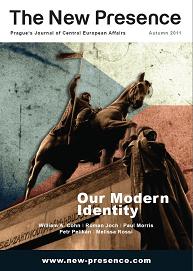The New Presence
The New Presence
Publishing House: Přítomnost
Subject(s): Politics / Political Sciences, Social Sciences
Frequency: 4 issues
Print ISSN: 1211-8303
Status: Ceased Publication
- 2003
- 2004
- 2005
- 2006
- 2007
- 2008
- 2009
- 2010
- 2011
- Issue No. 1
- Issue No. 2
- Issue No. 3
- Issue No. 4
- Issue No. 1
- Issue No. 2
- Issue No. 3
- Issue No. 4
- Issue No. 1
- Issue No. 2
- Issue No. 3
- Issue No. 1
- Issue No. 2
- Issue No. 3
- Issue No. 4
- Issue No. 1
- Issue No. 2
- Issue No. 3
- Issue No. 4
- Issue No. 1
- Issue No. 2
- Issue No. 3
- Issue No. 4
- Issue No. 1
- Issue No. 2
- Issue No. 3
- Issue No. 4
- Issue No. 1
- Issue No. 2
- Issue No. 3
- Issue No. 4
- Issue No. 1
- Issue No. 2
- Issue No. 3
- Issue No. 4
Articles list
{{ article.TitleOriginalLanguage }}
{{ article.TitleOriginalLanguage }}
({{ article.TitleEnglish }})
- Publication: {{ article.Publisher }} ({{ article.Issue }})
- Author(s): {{ article.Authors }}
- Contributor(s): {{ article.Contributors }}
- Language: {{ article.Language }}
- Subject(s): {{ article.Subjects }}
- Issue: {{ article.Issue }}
- Page Range: {{ article.PageRange }}
- No. of Pages: {{ article.NumberOfPages }}
- Keywords: {{ article.Keywords }}
- Summary/Abstract: {{ article.SummaryAbstract }}
- Price: {{ common.currency(article.Price) }}
Short Description
The New Presence magazine is Central Europe's eminent quarterly English-language journal, and is devoted to exploring current political, social, economic and cultural issues as they relate to the region. In 1995 MUDr. Matrin Jan Stránský, grandson of Jaroslav Stránský (a member of the Stránský publishing family, who established Lidové noviny the oldest newspaper in the country in 1893) built on his family´s tradition. The First editor of the renewed Přítomnost magazine was Miroslav Holub, folowed by Petr Pithart, Jan Sokol, Tomáš Vrba. Currently, Libuše Koubská serves in this position. In the light of growing international interest in 1996, The New Presence, an English language version of Přítomnost, was established. In analytical articles that touch on the political, social, economic, scientific and cultural spheres of life in the region, we seek to inform as well as engage the reader in affairs concerning Central Europe. Our authors range from Czech President Václav Havel and political analyst Jacques Rupnik, to noted poet Michael March. Our readers range from EU officials and ambassadors to journalists and students.

